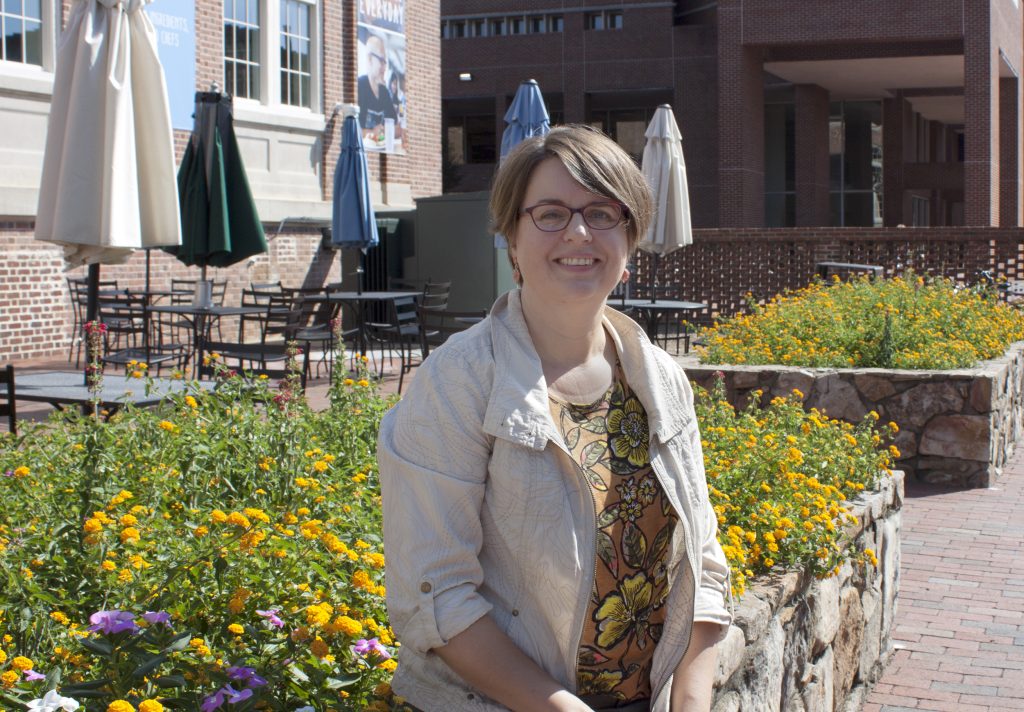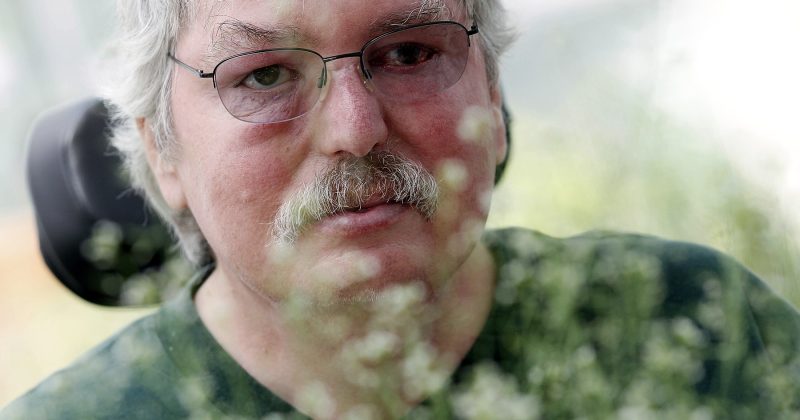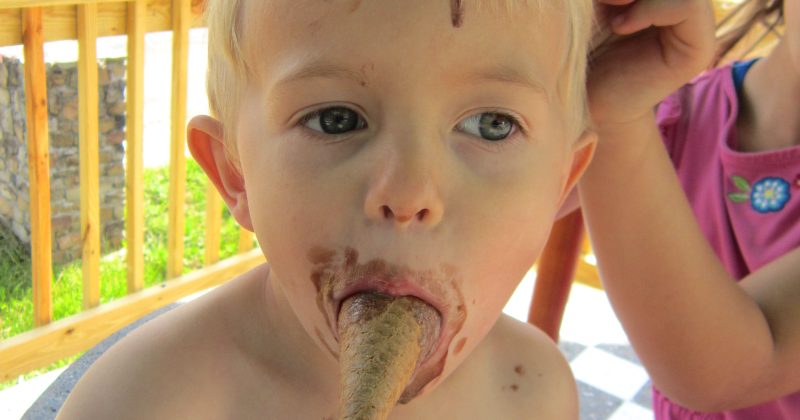
Amy Cooke outside Lenoir Hall. (photo by Kim Weaver Spurr)
FOOD FOR ALL: SYLLABUS
“Agriculture and the Environment,” a course offered through the curriculum for the environment and ecology, is taught by environmental ecologist Amy Cooke (Ph.D. ’07). Begun in 2009 with 24 students, the class now has 60 students in two sections, with one for Honors students.
Course content
“We start out the semester by talking about the history of domestic agriculture, moving on to modern crop production and agro-ecological issues,” Cooke said. “We look at policies such as the Farm Bill and discuss issues of sustainability and land use, genetically modified food, and the impact of food production on the environment.”
Where does your food come from?
The first assignment is for each student to keep a 24-hour food diary of everything consumed. Then they source all the ingredients of one dish. “It may be the first time they think about what’s in their food beyond ‘I just ate chicken,’” she explained. “What’s on that chicken? Garlic? Pepper? They have to find out where the crop was domesticated, even down to the spices. I’m trying to get them to pay attention to what they’re eating.”
Making things real for students
Cooke provides hands-on experiences for students. “Most of our students are suburbanites. When I started teaching this class, I asked how many people had ever been in a cornfield. Two students out of 20 raised their hands. Now, we have more students whose families have gardens. Students advocated for having opportunities to get their hands in the dirt, look at soil and bugs, to experience the things we’re talking about in class.”
As part of a service-learning component, in 2014 the class developed a Liberty Garden, part of the Carolina Campus Community Garden, in observance of World War I. “While Victory Gardens from World War II were about community-building, Liberty Gardens were about food security, since main crops were being shipped to Europe. Students had to research what people were growing in North Carolina from 1914 to 1917. Zucchini, for example, was not available, but peppers and peas were.”
Each semester students also visit farms to talk about the challenges facing farmers in the N.C. Piedmont.
“These students may not be farmers …”
“But they will be lawyers and decision-makers. It’s important for them to understand agriculture so that they can shape policies that sustain agriculture in North Carolina and beyond and so they can be informed consumers. A lot of students are interested in international development and conservation. These students are pretty amazing,” Cooke said.
Anne E. Corrigan ’16 said of the course, “Everyone should have this basic understanding of agriculture and food production as it impacts every human every day via our decision-making, consumption and environmental impact.”
Amy Cooke teaches courses on the intersection of natural resource management, international development and human rights, and is particularly interested in water, agriculture and Africa. In conjunction with anthropologist Rudi Colloredo-Mansfeld, Cooke organizes the Real Food Calculator internship. UNC students work with Carolina Dining Services and Aramark to audit purchases for the amount of fair, local and organic foods being served in Lenoir Dining Hall.
By Dianne Shaw
Published in the Fall 2015 issue | Features, Syllabus, Tar Heels Up Close
Read More

Bye-bye, Bugs: Jeff Dangl is UNC’s plant disease-buster
Biologist Jeff Dangl, who conducts elegant research into how plant…



